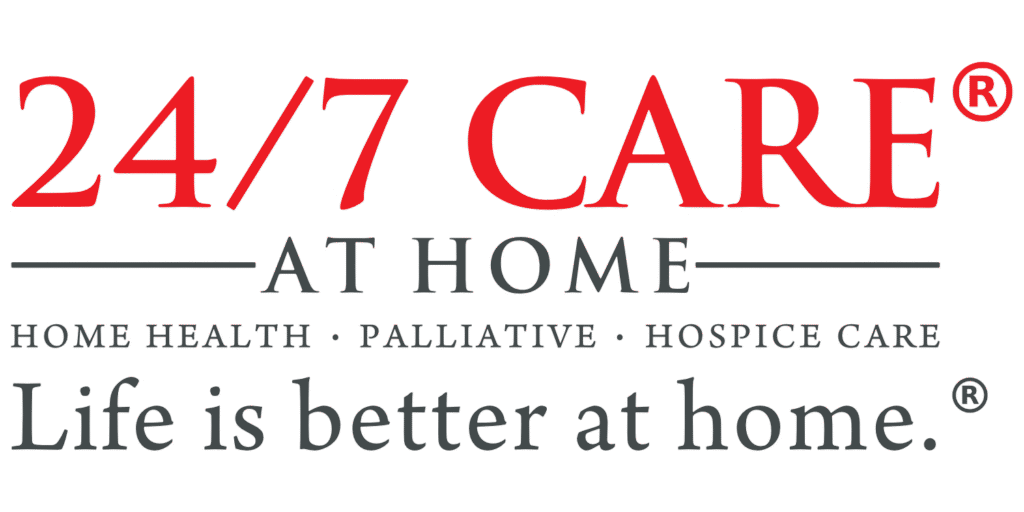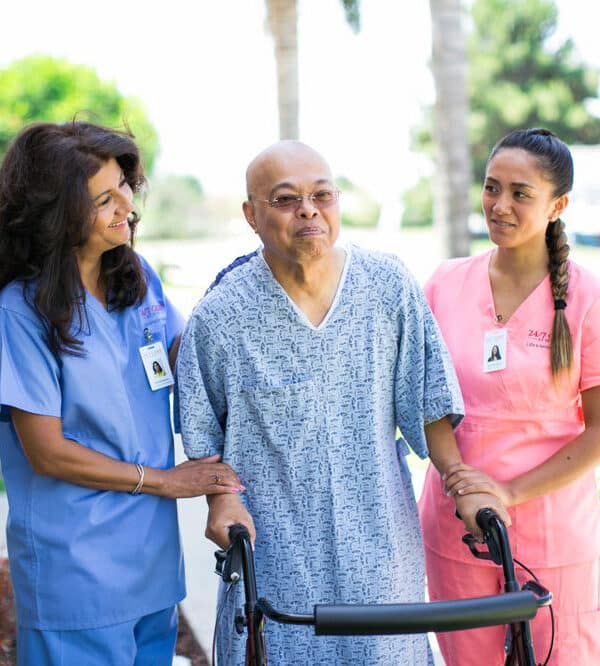Home Health Aids (HHAs)
Home Health Aides (HHAs) in Home Health Care
Home Health Aides (HHAs) are compassionate caregivers who assist patients with daily living activities at home. While they are not licensed medical professionals, they work under the supervision of Registered Nurses (RNs) or Licensed Vocational Nurses (LVNs) to ensure patients receive safe and consistent care.
Role in Home Health Care
HHAs provide essential support for patients recovering from illness, surgery, or managing chronic conditions. Their responsibilities often include:
- Helping with bathing, grooming, and dressing
- Assisting with mobility and exercise routines
- Preparing meals and supporting proper nutrition
- Monitoring patient comfort and reporting changes to nurses
- Offering companionship and emotional support
Why They’re Important
By assisting with personal care and daily tasks, HHAs help patients remain comfortable, safe, and independent in their own homes. They also give families peace of mind knowing their loved ones have consistent, reliable support.
Learn about Other Departments
At 24/7 Care at Home, we know there’s no better place for healing and recovery than the comfort and familiarity of your own home. Our dedicated Home Health Team provides compassionate, personalized care designed to help you successfully recover from an illness, surgery, or injury, or manage ongoing health conditions such as diabetes, heart failure, or respiratory issues—because we genuinely believe life is better at home.
Registered Nurses (RNs)
Provide skilled nursing services, including medication management, wound care, pain relief, education, and ongoing support to promote recovery and maintain independence at home.
Licensed Vocational Nurses (LVNs)
Licensed Vocational Nurses (LVNs) provide essential basic medical care to patients under the supervision of registered nurses (RNs) and physicians.
Home Health Aides (HHAs)
Offer compassionate personal care assistance, including bathing, grooming, and dressing, ensuring your comfort, safety, and dignity throughout recovery.
Physical Therapists (PTs)
Help you regain strength, balance, and mobility through individualized therapeutic exercises, enabling you to safely perform everyday activities again.
Medical Social Workers (MSWs)
Provide emotional support, counseling, and connections to community resources, addressing the social and emotional aspects of managing your health at home.
Occupational Therapists (OTs)
Assist with strategies and adaptive equipment to make daily tasks such as dressing, cooking, and bathing easier and safer, helping you reclaim your independence.
Home Health Aid FAQ
Frequently Asked Questions
Home Health Aides (HHAs) are an important part of home health care, providing personal support that allows patients to live safely and comfortably at home. Families often have questions about the role of HHAs and how they contribute to daily care. The following FAQs highlight what HHAs do and why they are essential in home health services.
What does a Home Health Aide (HHA) do?
A Home Health Aide provides essential non-medical care to patients who need assistance at home. Their responsibilities often include helping with personal care tasks such as bathing, grooming, dressing, and mobility support. HHAs may also prepare meals, assist with light housekeeping, remind patients to take medications (under supervision), and provide companionship. Their goal is to help patients maintain independence and dignity while staying safe in the comfort of their own homes.
Do Home Health Aides provide medical care?
No. HHAs are not licensed medical professionals and do not provide clinical care such as administering injections, adjusting medications, or performing medical procedures. Instead, they work under the supervision of a Registered Nurse (RN) or Licensed Vocational Nurse (LVN) and focus on daily living support. However, HHAs play a critical role in observing changes in a patient’s condition, such as appetite, mobility, or mood, and reporting these observations to the nursing staff for further evaluation.
How can an HHA help patients at home?
HHAs are especially valuable for patients recovering from surgery, living with chronic illnesses, or managing age-related conditions. By assisting with activities of daily living, HHAs reduce stress for both patients and families. They can help patients safely move around the house, prepare nutritious meals, encourage regular routines, and provide companionship that combats loneliness. Their support allows patients to heal, stay active, and enjoy a higher quality of life while remaining at home.
What is the difference between an HHA and a nurse?
The main difference lies in the level of medical training and scope of practice. Home Health Aides provide personal care and support with daily activities, while nurses (RNs or LVNs) are licensed to deliver medical treatment such as wound care, medication management, and health monitoring. HHAs focus on comfort, safety, and day-to-day assistance, while nurses focus on clinical needs. Together, they form a team that ensures patients receive both medical expertise and compassionate personal support.
Why are HHAs important in home health care?
HHAs are a vital part of the care team because they provide consistent, hands-on support that directly improves a patient’s quality of life. Their daily care allows patients to remain at home instead of moving to a facility, which can be especially important for comfort, independence, and emotional well-being. HHAs also give families peace of mind by knowing their loved ones are receiving reliable and compassionate attention every day. By handling personal care needs, HHAs free up nurses and doctors to focus on medical treatment, creating a balanced approach to home health care.
At 24/7 Care at Home, we understand that the most important team member is you. Your active involvement and commitment truly make the difference. We empower you by providing the necessary education, tools, and ongoing support, helping you confidently manage your own health at home.



